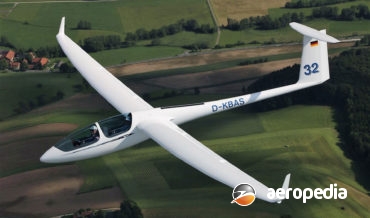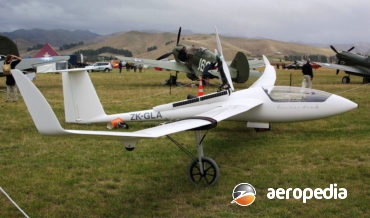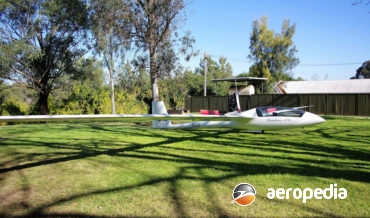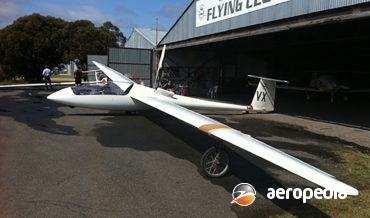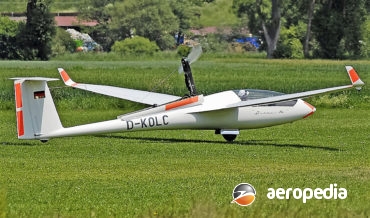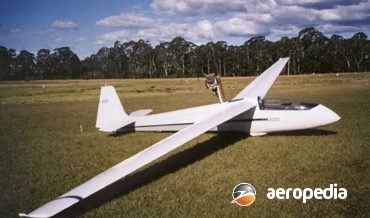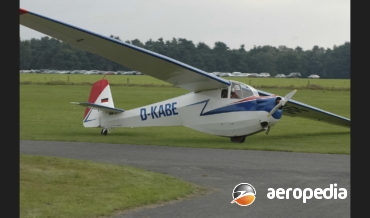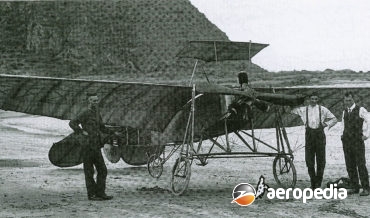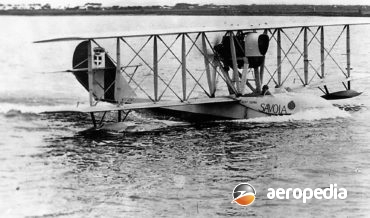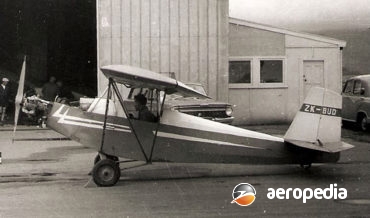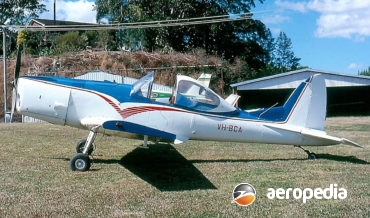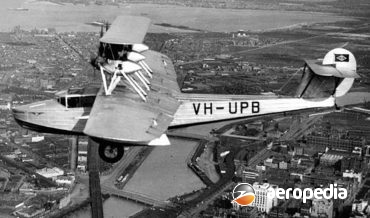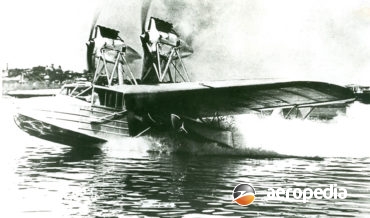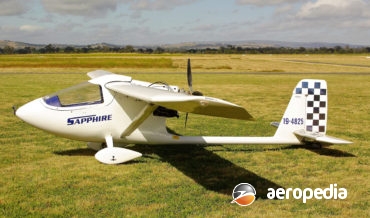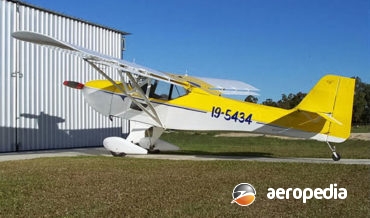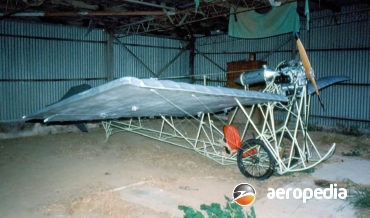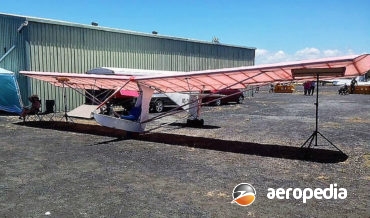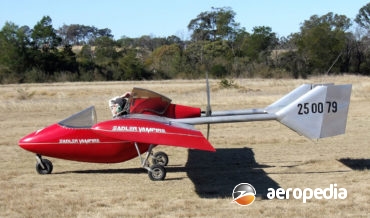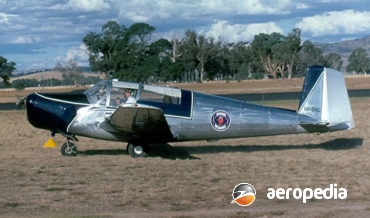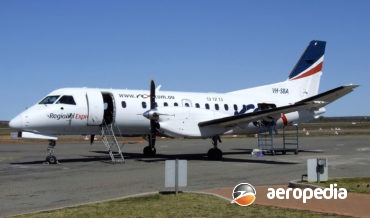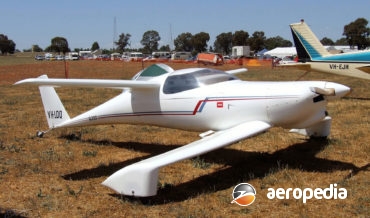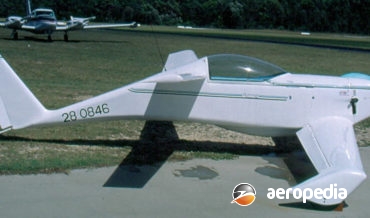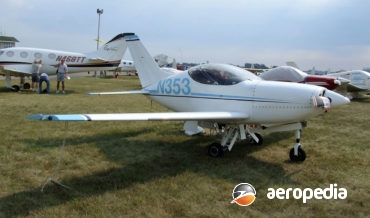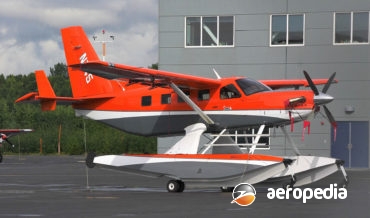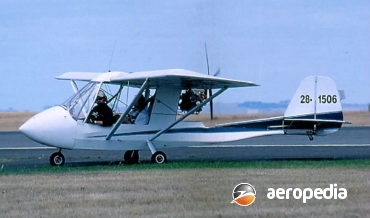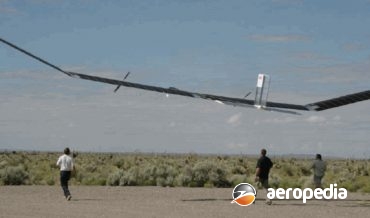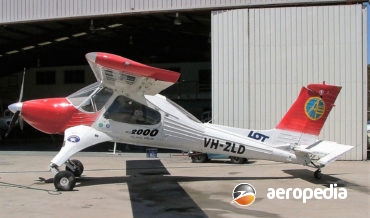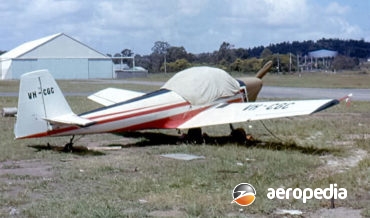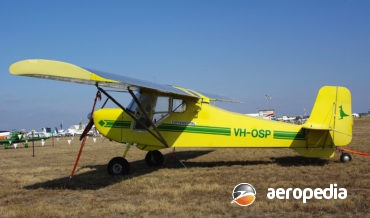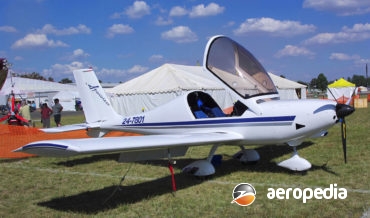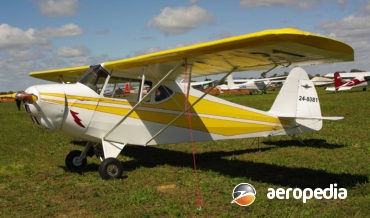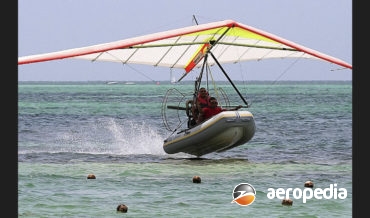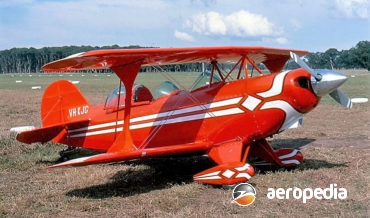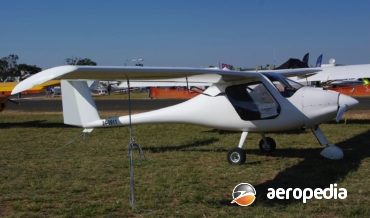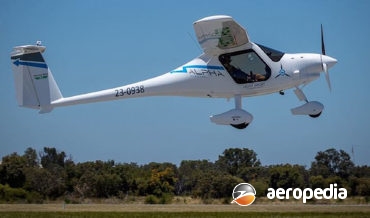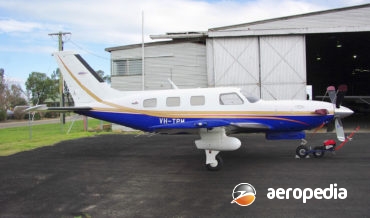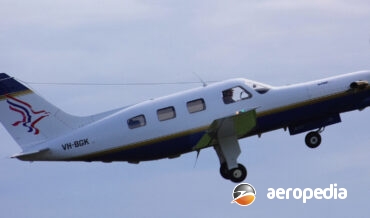All Contents
Contents
In 2008 Alexander Schleicher announced his company was developing a new design to replace the ASH 26 series, the new model to have extended ailerons and a re-designed wing structure.
David C. Eyre
- May 8, 2019
The ASG 32 series of gliders is manufactured in Germany by Alexander Schleicher, the new model being announced by the Company in April 2013 and the prototype was flown at Poppenhausen on 31 May 2014 and subsequently entered production, deliveries commencing in 2015.
David C. Eyre
- May 8, 2019
The ASG 29 high performance glider was designed in Germany and placed in production by Alexander Schleicher GmbH and Co, being a development of the ASW 27 series, the prototype flying for the first time on 9 November 2005 and deliveries of machines began in 2006.
David C. Eyre
- May 8, 2019
The Ventus is a motorised glider produced by Schempp-Hirth in Germany. It was produced during the years 1980 to 1994 and was designed by Klaus Holighaus and replaced the Mini-Nimbus on the production line.
David C. Eyre
- May 8, 2019
The Nimbus series of gliders over the years produced by Schempp-Hirth in Germany, and designed by Klaus Holighaus, has been very popular and has been produced in a number of variants, a number having sustainer engines, and others fitted with Rotax engines and able to self launch.
David C. Eyre
- May 8, 2019
Like all gliders produced by Schempp-Hirth GmbH in recent years, the Janus is of fibreglass construction and is of two seat configuration.
David C. Eyre
- May 8, 2019
The Discus series of gliders was designed by Klaus Holighaus and more than 850 examples of various models have been built, most as Standard Class gliders.
David C. Eyre
- May 8, 2019
The Arcus was developed by Schempp-Hirth Flugzeugbau GmbH in Germany as a two-seat 20-meter high-performance glider and employed the latest developments in aerodynamic research and has been described as a high-performance and practical aircraft and complements the Company’s Duo Discus series of gliders.
David C. Eyre
- May 8, 2019
This series of gliders was introduced to the Company’s range in 1964, being a development of the earlier Zugvogel and SF-26, the SF-27A being a standard Class design for competition.
David C. Eyre
- May 8, 2019
The SF-24 Motorspatz is a two-seat self-launched glider developed and built in Germany for training purposes. Scheibe over the years has developed a number of gliders, a few of which have been motorised.
David C. Eyre
- May 8, 2019
Arthur Waldermar Schaef was one of the more successful early aircraft designers and builders who lived in this part of the world in the early 20th Century.
David C. Eyre
- May 8, 2019
The S.16 was a passenger carrying flying-boat built in Italy by the Societa Idrovolanti Alti Italia (SIAI) for operations of civil passenger carrying and was powered by a Fiat A.12bis engine.
David C. Eyre
- May 8, 2019
The Savage Monoplane, or Savage Special as it was also known, was one of a small number of New Zealand-designed and amateur-built aircraft to be successfully flown, having been granted a Certificate of Airworthiness.
David C. Eyre
- May 8, 2019
During the 1960s some conversion work was carried out on a number of de Havilland Chipmunks in Australia to increase their performance.
David C. Eyre
- May 8, 2019
The Saro A.21 Windover was of similar configuration to the Cutty Sark but was larger and had three Gipsy II engines and could accommodate a crew of two and six passengers.
David C. Eyre
- May 8, 2019
S E Saunders Ltd (later Saunders Roe) on the Isle of Wight was set up in the 1920s to design and construct amphibians and flying boats, and one of the first designs produced by the Company was the Saro A.17 Cutty Sark.
David C. Eyre
- May 8, 2019
The Sapphire was originally designed and built in Australia by Scott Winton to CAO.19.
David C. Eyre
- May 8, 2019
The Bushbaby is South Africa’s most successful kit aircraft, produced in some numbers since the early 1990s.
David C. Eyre
- May 8, 2019
Alberto Santos-Dumont (1873-1932) was a wealthy Brazilian living in Paris, France and he played an important part in promoting the design and construction of airships for some years from 1898, and was one of the first ‘Aeronauts’ to build and fly an airship in controlled and sustained flight.
David C. Eyre
- May 8, 2019
The Goat series of ultralight basic gliders was designed by Michael Sandlin in the United States, it being a parasol wing, single-seat glider for which Mr Sandlin produced technical drawings for construction by amateur builders.
David C. Eyre
- May 8, 2019
The Sadler Vampire was a single-seat ultra-light aircraft designed by Bill Sadler and built in the United States, 28 aircraft being built there before a downturn in the fortunes of the industry led to production ceasing.
David C. Eyre
- May 8, 2019
Built by Svenska Aeroplane AB at Linkoping in Sweden, the Safir was an all-metal training monoplane produced for the Swedish Airforce.
David C. Eyre
- May 8, 2019
Over the years manufacturers have looked at the requirements of commuter airlines with a view to producing new airliners to meet operator requirements.
David C. Eyre
- May 8, 2019
The Q2 is a high performance two-seat canard design, a development of the Quickie aimed at the inexperienced first time amateur constructor, with only a small working area and a normal complement of tools
David C. Eyre
- May 8, 2019
In 1975 Gene Sheehan and Tom Jewett began looking for a small, reliable engine with low fuel consumption to power a small, efficient, sporting aircraft
David C. Eyre
- May 8, 2019
The Venture, and its co-produced Spirit, are light sporting aircraft produced in kit form by Questair Inc, which was formed by Edward MacDonough in the United States, the Venture being designed by James Griswold, an engineer with Piper Aircraft
David C. Eyre
- May 8, 2019
The Kodiak is a new, high-wing, fixed undercarriage single-engine turboprop powered light transport developed by Quest Aircraft of Standpoint, Idaho
David C. Eyre
- May 8, 2019
With more than 500 examples built, and over 750 kits sold around the world, the Quad City Challenger series has been very popular on the ultra-light / micro-light market, being available in a variety of models
David C. Eyre
- May 8, 2019
The Zephyr is a solar-powered, high-altitude long-endurance UAV initially developed by QinetiQ, a British company, but which became part of the Airbus High Altitude Pseudo-Satellite (HMAPS) program, becoming known as the Airbus Zephyr
David C. Eyre
- May 8, 2019
PZL was founded in 1928 and has been involved in the construction of aeroplanes for many years.
David C. Eyre
- May 8, 2019
The PZL-102 Kos (Blackbird) was designed and developed by Polskie Zakladey Lotnicze (PZL), the prototype powered by a 48-kw (65-hp) Narkiewicz four-cylinder horizontally-opposed air-cooled engine flying for the first time on 21 May 1958.
David C. Eyre
- May 8, 2019
The Sassy is marketed by Protech Aircraft Inc in Houston, Texas, and is a simple-to-build two-seat side-by-side amateur built aircraft with STOL performance.
David C. Eyre
- May 8, 2019
The Sparviero (Sparrow Hawk) is an Italian designed two-seat light sporting monoplane of all composite construction built as a complete aircraft by Pro Mecc Srl of Corigliano d’Otranto, Italy.
David C. Eyre
- May 8, 2019
In 1939 Porterfield Aircraft Corp in Kansas City introduced a new range of light two-seat in tandem cabin monoplanes which were a development of the earlier Model 35 series.
David C. Eyre
- May 8, 2019
In the 1980s Polaris Motor, an Italian company, commenced designing and producing a small flying-boat which was basically a trike with an amphibious hull.
David C. Eyre
- May 8, 2019
As would be expected, the S-2 was a natural two-seat development of the very popular single-seat S-1 series.
David C. Eyre
- May 8, 2019
The Virus and Sinus light powered gliders are members of a family of aircraft produced to meet world ultra-light regulations and which are produced in volume by Pipistrel in Slovenia for the world market.
David C. Eyre
- May 8, 2019
The Alpha Electro is one of the first of a new generation of light training aircraft powered by electric motors and has been developed by Pipistrel, which is based in Slovenia’s Vipava Valley.
David C. Eyre
- May 8, 2019
The Malibu Meridian was launched in 1997 at the National Business Aviation Association Convention in Dallas, Texas when a fuselage mockup was displayed.
David C. Eyre
- May 8, 2019
The Malibu was introduced to the range of single-engine aircraft produced by the Piper company in August 1982 as a competitor for the very successful Cessna P210 Centurion series which, up to that time, was the only pressurised single-engine cabin monoplane available on the market.
David C. Eyre
- May 8, 2019
Recent Comments
Archives
Categories
- No categories
Categories
- No categories
Latest Posts
Newsletter


